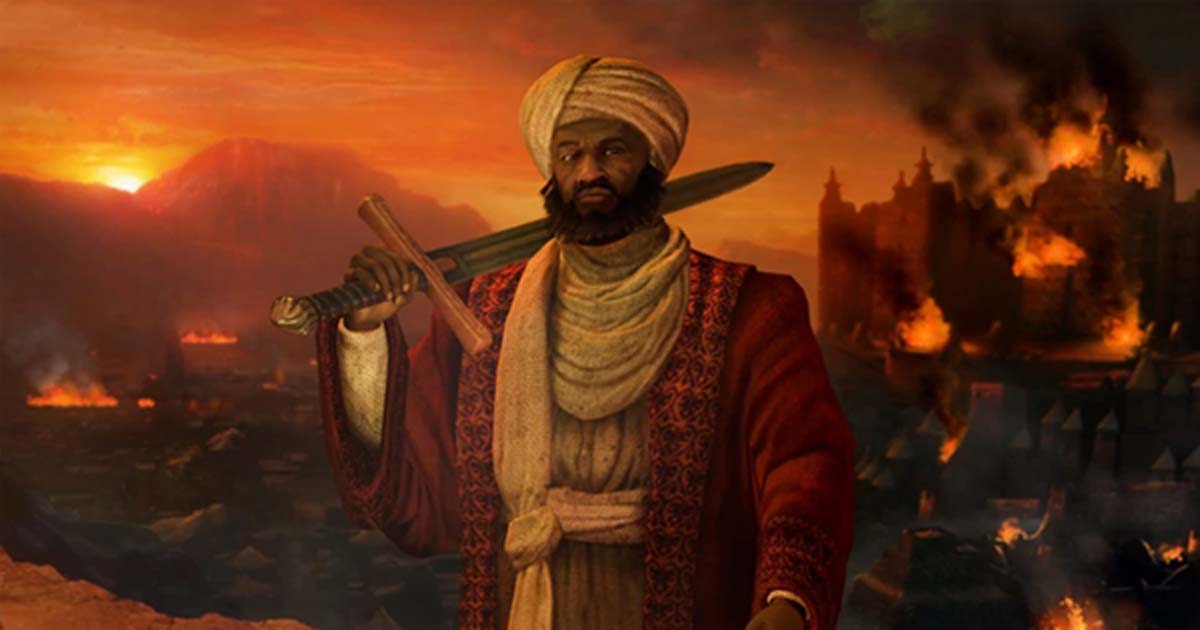Askia the Great: Revolt Leader to Powerful Songhai Emperor
Muhammad I Askia (also known as Askia the Great) was one of the most important emperors of the Songhai Empire. Askia came to power in 1493, when he overthrew the last ruler of the Sunni Dynasty, Sunni Baru, and established the Askia Dynasty.
He was a capable ruler, who not only expanded his realm, but also increased the efficiency of his empire’s administration through reforms. Askia’s fortunes fell in his later years, as he was deposed by one of his own sons. But after spending several years in exile, he was recalled to the capital Gao, where he died shortly after.
Little is known about Askia the Great’s origins. Although the date and place of his birth are unknown, his original name is recorded to have been Muhammad ibn Abi Bakr Ture. Based on his birth name, Askia is thought to have been of Tukulor origin and he may have belonged to a Senegalese family that settled in Gao.
- Understanding the Crusades from an Islamic Perspective
- The Mali Empire: The Rise of the Richest Civilization in West Africa
- Ten of Africa’s Most Powerful Kings, Queens, Warriors and Legends
Son of a Djinn: Muhammad I Askia’s Claim to the Throne
It is unsurprising that little has been recorded about Askia’s early life, as he was neither related to the ruling Sunni Dynasty nor to any other known royal family. Thus, his family background made him an insignificant figure at that point in time.
Additionally, as Askia was not of royal blood, he did not have any legitimate claim to the throne of the Songhai Empire. Oral history, however, states that Askia was the son of Sunni Ali’s sister, Kasey, by a djinn. This story may have been a means of legitimizing Askia’s rule.
Askia came to power by overthrowing the Sunni Dynasty. Between 1464 and 1492, the Songhai Empire prospered under the rule of Sunni Ali. His successor, Sunni Baru, however, was a much less capable emperor and the dynasty came to an end just a year after Sunni Ali’s death.
Muhammad I Askia Leads the Revolt
One of the issues faced throughout Sunni Ali’s reign was the division between the inhabitants of the countryside, who continued their pagan practices, and those of the cities, who had embraced Islam. While Sunni Ali successfully balanced the interests of both parties, Sunni Baru favored his rural subjects. As a consequence, Sunni Baru was regarded as a traitor to Islam and dissatisfaction among the urban Muslims grew. This quickly developed into a full-blown revolt, which was led by Askia.
Despite having numerical superiority, Sunni Baru failed to exploit this advantage and his army was decisively defeated by the rebels at the Battle of Anfao on the April 12, 1493. Sunni Baru was deposed and went into exile, thus marking the end of the Sunni Dynasty.

Muhammad I Askia was dubbed Askia the Great. (Afric Network / YouTube)
It was after this event that the title ‘Askia’ was adopted by the new ruler of the Songhai Empire. Some sources state that this name translates to mean ‘forceful one’, while others claim that it was derived from ‘a si tya’ (meaning ‘he will not be’), which is a reference to the insult hurled at him by the women of the deposed Sunni Dynasty. In the latter case, the adoption of ‘Askia’ was meant to ridicule these women.
Askia the Great Establishes His Rule
As ruler of the Songhai Empire, Askia sought to enhance the status of Islam in his realm, which is reflected in some of the administrative reforms he instituted. For instance, the Quran became the foundation of the state’s civil code and al-Maghili, a Moroccan reformer, was appointed as the emperor’s adviser in matters of religious orthodoxy.
It was also Askia who established Islam as the official religion of the nobles, which is another sign of his commitment to this religion. Moreover, in 1496, Askia went on the hajj (pilgrimage) to Mecca. According to a chronicler who accompanied the emperor on the pilgrimage, the djinn of Mecca appointed Askia caliph and told him his rights over the former vassals of the Sunnis.

Mecca in 1718. (Public Domain) In 1496 Askia went on the hajj to Mecca.
Other administrative reforms initiated by Askia were of a civil or military nature. For instance, he divided the Songhai Empire into provinces, each of which was administered by a governor. This allowed Askia to consolidate the regions conquered by his Sunni predecessors by placing them under an efficient administration. Askia also organized a standing army and a fleet of canoes under the command of a general and an admiral, respectively. Moreover, Askia appointed officials who oversaw various aspects of the empire, including its finance, agriculture, and judiciary.
- Famous and Powerful Eunuchs of the Ancient World
- Royal Palaces of Abomey, Benin: The Cultural Epicenter of One of Africa’s Greatest Empires Was Stained with Blood
- The First Caliphs of Islam: Power, Corruption, War, and Treachery in the Rashidun Caliphate
While he was an exceptional statesman, Askia did not fare as well as a military leader. He was victorious in some campaigns, but met defeat in others. Nevertheless, the size and power of the Songhai Empire was unmatched in West Africa during Askia’s reign and its influence was felt well beyond its borders.
Askia’s Tomb
In 1528, Askia was deposed by his eldest son, Musa, who ruled for three years before being assassinated by his brothers. Musa was succeeded by Benkan, one of Askia’s nephews. In order to secure his power, Benkan had his uncle banished onto an island in the Niger River and he was forced to stay there until 1537. In that year, Benkan was deposed by one of Askia’s sons, Ismail, who became the new ruler of the Songhai Empire. Askia was invited back to Gao by his son and as a reward gifted Ismail his green turban and sabre.
The founder of the Askia Dynasty died in the following year and was buried in Gao. An earthen pyramid surmounted by wooden spikes was erected over his burial place and it remains one of the most revered sites in West Africa today.

Tomb of Askia the Great. (Mattes / CC BY-SA 3.0)
Top image: Askia the Great, ruler of the Songhai Empire 1493 to 1528, in the Game Civilization V. Source: Civilization Wiki
By Wu Mingren
References
blackhistory.com. 2008. Askia the Great (Askia Muhammad I). [Online] Available at: http://blackhistory.com/content/62209/askia-the-great
Chwanya, M. 2013. Askia Muhammad Toure The Great. [Online] Available at: https://streamafrica.com/culture/askia-muhammad-the-great/
Malik, A. 2019. Askia The Great: The Man Who Transformed Songhai Into An African Superpower. [Online] Available at: https://www.panafricanalliance.com/askia-the-great/
Roth, C. 2009. Muhammad Toure / Askia Muhammad I (c. 1442-1538). [Online] Available at: https://www.blackpast.org/global-african-history/toure-muhammad-c-1442-1538/
Rouch, J.P. 2019. Muḥammad I Askia. [Online] Available at: https://www.britannica.com/biography/Muhammad-I-Askia




















Comments
this could turn into a Book that this King was Guided by the Jinns
Just read the other day at 'Political Islam' (Bill Warner) that the spread of islam has cost 270 million peoples their lives. That would approximatly be 13,5 times as evil as the Nazi's who killed approximatly 20 million people...... (Source: Political Islam > Tears of Jihad.)
Maybe you can write an article about that!
Now that would be really enlightening!